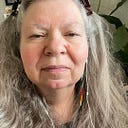Consent And Permission
Let’s talk about ethics, consent and permission when we’re connecting with animals. This is a complex conversation, yet a necessary one. Why? Because our colonized society supports the hierarchal structure of humans having dominion over animals. When that happens, animals become second class citizens, their existence being at the whim, convenience and need of humans.
But here’s the thing — animals are sentient beings with their own agency. That means:
- Animals are the custodians of their own lives
- Animals have their own individual, unique experiences that stand on their own
- They are entitled to the same rights as humans
In my perspective, that’s where consent and permission comes into play.
Imagine this — your week has been overwhelming and wild. There’s been relationship challenges, communication issues with the mortgage company, misunderstandings as you attempt to finalize your vacation plans, smoke alarm going off in the middle of the night. Not to mention the collective trauma of surviving a world wide pandemic, social unrest and weather related disasters that weighs at the back of your mind.
You’ve decided to give yourself a break so armed with your favorite book and playlist you retreat to your neighborhood coffee shop for a much needed respite.
You order your coffee, get settled in, listening to your favorite music, just got to the “good” part in your book …
and….
one of your neighbors sees you, comes over to your table, seats themselves and jumps into the latest neighborhood gossip.
How do you feel when that happens?
Sometimes when folx join us like that they are well intentioned, sometimes they are oblivious. Yet, whatever their intent is, it’s the result of it that matters. Wouldn’t it have been better all around if your neighbor had asked permission, or waited for an invitation?
Same goes with animals. They have their own agendas and are not required to interrupt them because we have intruded on them.
Animals are sentient beings with their own agency and we deny them their agency when we presume it’s ok to join them.
Denying an animal’s agency puts us in a hierarchal position of power over. Through the lens of power over, humans are separate, dominant and superior to animals with the result — even if this is not the intent — of creating division and turning animals into being less than. Let me repeat — this is important: We place them in the position of being less than they truly are when we deny their agency.
There is no room in an animal’s agency for your ego.
Consent and permission is necessary to proceed in true kinship with animals. It is not OK to make assumptions and assume what we want is what the animal wants.
This can be quite the challenge as it involves looking at ourselves and our intentions with tenacious honesty and clarity. It involves exploring our own inner world and discovering why we feel it necessary to step in and project our desires onto them without being invited.
When we connect with an animal without being invited, whether in real life or intuitively, we are projecting our needs, intention and desired results onto the animal. We haven’t taken the time to see them. Be it well intentioned or not, this is coming from a place of power over instead of true kinship, it indicates coming from a place of ego.
This brings up questions about ethics and boundaries.
In my work I abide by and practice a Code of Ethics. It helps me live my purpose by articulating my core values and principles and linking them with my professional conduct.
Two are:
- Only go where I am invited
- Respect and support true kinship, recognizing the interdependency and agency of all sentient beings
Basically it’s good manners to practice this and it shows my respect for the animals. Second off, when animals are acting from their own agency, they will come to me as, if and when they require my help or input. They know their needs better than I do.
It’s vital to know what lenses we are using when we are with animals. Are those lenses our own authentic ones or ones that are imposed upon us by a colonized society? You’d be surprised at how many colonized lenses seep into our daily life and folx unconsciously accept because ‘that’s the way it’s done’.
We need to become consciously aware of the lenses we use in our relationship with animals, examine them, know where they come from, why we use them and the effect they have on the animals and our relationship with them. Keep the lenses that authentically work for you, tweak those that need tweaking and remove those that aren’t authentically yours.
As you begin to examine one of your lenses, this might help:
- Ask yourself the origin of the lens
- Ask yourself how it affects the animal and the relationship you have with them
- Ask yourself what are your feelings when you use that lens
I hope this encourages you to discover and question your lenses, boundaries and ethics so that you begin to look at your relationship with animals differently, in a way that recognizes and honors their agency.
Janet Roper is an animist, podcaster, intuitive practitioner, non-traditional animal communicator, mentor and educator and for 20+ years has helped people restructure their relationship with animals. Two of her most popular resources are her monthly newsletter and her 5 email introductory series to her signature program Deepen. Visit her website and give her podcast True Kinship With Animals a listen.
